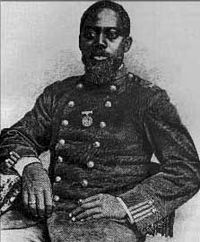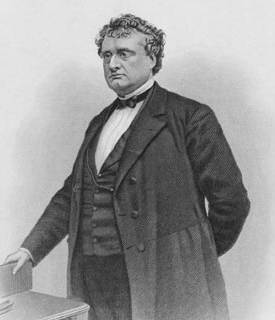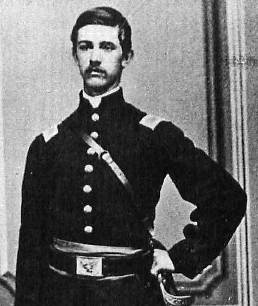
Notably, on this day William H. Carney joined the regiment. Â He would become the first African-American to receive the country’s Medal of Honor, in recognition of his valor during the assault on Fort Wagner.
At the time a strong prejudice existed against arming the blacks and those who dared to command them. The sentiment of the country and of the army was opposed to the measure. It was asserted that they would not fight, that their employment would prolong the war, and that white troops would refuse to serve with them. Besides the moral courage required to accept commissions in the Fifty-fourth at the time it was organizing, physical courage was also necessary, for the Confederate Congress, on May 1, 1863, passed an act, a portion of which read as follows: —
” SECTION IV. That every white person being a commissioned officer, or acting as such, who, during the present war, shall command negroes or mulattoes in arms against the Confederate States, or who shall arm, train, organize, or prepare negroes or mulattoes for military service against the Confederate States, or who shall voluntarily aid negroes or mulattoes in any military enterprise, attack, or conflict in such service, shall be deemed as inciting servile insurrection, and shall, if captured, be put to death or be otherwise punished at the discretion of the Court.”



